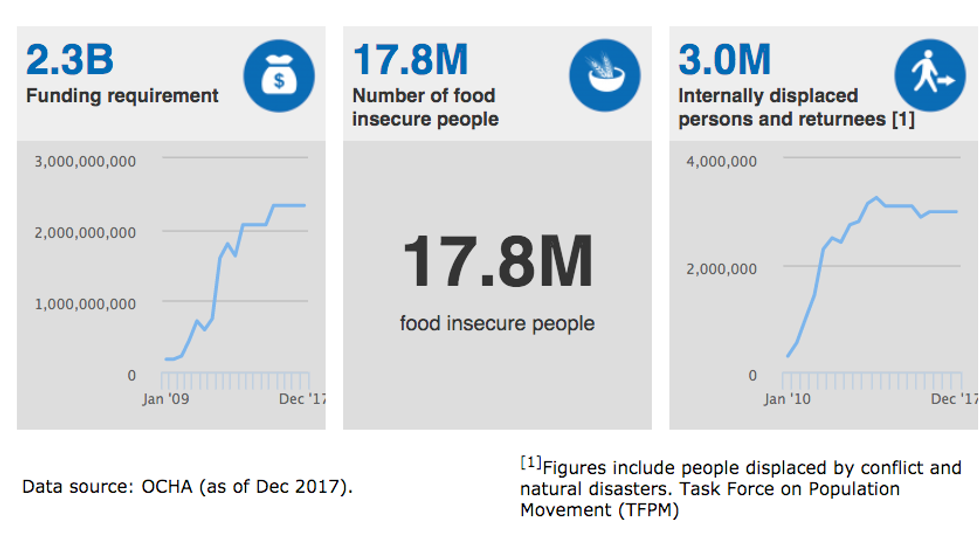As with the Syrian Civil War, the Yemeni Civil War has been in the international spotlight for several years due to its complexity and sheer brutality. Since the Houthi rebels took the capital, Sanaa, in September 2014, the conflict has only escalated with the intervention of foreign powers and terrorist cells. As a consequence of a prolonged, violent disruption, much of the country’s infrastructure (which was underdeveloped to begin with) has been destroyed, and millions of civilians lack sufficient access to food, clean water, shelter, and medical care. Mainstream media outlets across the world have given the dire situation regular attention.
But this has been the status quo for a long time.
As early as the summer of 2015, the United Nations identified the situation in Yemen as a humanitarian emergency. Since over half of the Yemeni population was already living in poverty prior to the capture of Sanaa, many people were swiftly pushed into starvation following escalation. By January 2016, over 7 million were at risk of famine, and over 21 million in a population of about 26 million were in need of humanitarian aid. Despite the efforts of altruistic organizations, the disruption continued to deteriorate essential basic services, contract the country’s economy, and restrict access to aid for civilians. As of December 2017, almost 18 million are now either starving or at risk of starvation.
With each new report, the number of starving civilians continues to rise. The crisis only grows in severity. However, the language of the news coverage has hardly changed over the years.
Back in 2015, major media outlets were reporting that “millions” in Yemen were “staring at famine” and that the country was on “the brink of famine.” At the time, 7 million faced starvation. Come 2016, that number had doubled. Still, news networks put out headlines that said that “millions” were “at risk of starving” and “‘one step away’ from devastating famine.” And in 2017, the news continued to say that “millions” were “a step away” from famine. One could be forgiven for not realizing that the number of starving civilians referenced by “millions” had nearly tripled in two years. The insistent language almost obscures the true scale of the crisis.
Some might say that the famine in Yemen is a forgotten humanitarian crisis, as the situation seems to only deteriorate. But on the contrary, in addition to the significant effort to provide necessary relief, the international media has given the famine an unusually long attention span. The problem is not a lack of coverage, but rather a lack of nuance in the presentation. It is hard to accurately convey the difference of severity between 7 million starving and 18 million starving when the language used in the coverage and the headlines appears not to change.
It is understandable why the media has not invented new ways to show the growing severity of the famine. Although the majority of news outlets intend to publicize the plight of the Yemeni people, there are only so many techniques that can emphatically demonstrate a deteriorating situation for over two years. And a reader can only take in so much of this information before they become desensitized to it. With no end in sight for the famine, it makes sense to maintain a neutral tone while still fostering feelings of outrage and compassion.
But after two years of the same spiel, an article titled “Famine in Yemen—Millions starving” has just become another headline you would only find on a slow news day. It shares the placeholder slot with other common headlines like “Tensions flare with North Korea” and “Brexit negotiations remain deadlocked.”




















